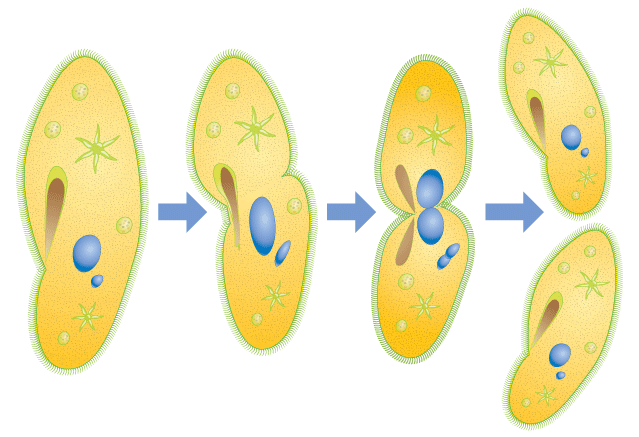
The isogametes are produced by multiple or repeated binary fission. Union of the gametes of similar size and shape. The uniting individuals are smaller than the ordinary vegetative individuals, called merogametes. The two mature individuals behave as gametes and fuse. Examples: Actinophrys, Actinosphaerium, Paramoecium aurelia, etc. The gametes derived from the same parent cell fuse. The zygotes develop into adult, either directly or through encystment and fission of various types.ĭepending upon the degree of differentiation of the fusing gametes syngamy may be of the following types: The nuclei of the gametes fuse to form the zygote nucleus or synkaryon. Syngamy is the complete and permanent union or fusion of two specialised protozoan individuals or gametes resulting in the formation of a fertilized cell or zygote or oospore. Of different types of sexual reproduction in protozoans syngamy, conjugation, automyxis are important. This is termed as zygotic meiosis, in which only zygote is diploid but rest of the life cycle is haploid. This is called gametic meiosis, in which gametes become haploid.īut in some protozoans reduction division occurs in one of the subsequent divisions after formation of zygote. In majority, reduction division occurs shortly before syngamy. Sexual reproduction involves meiotic division reducing the chromosomes to haploid number. However, there are many protozoans in which sexual reproduction is of regular occurrence. Most protists (protozoa) can continue to live, multiplying asexually for prolonged periods and may undergo sexual reproduction only at irregular intervals. The two units (male and female gametes) from two separate individuals unite by fusion of their cytoplasm, followed by the union of their nuclei. The modes of reproduction in which two gametes unite to form a new individual is known as sexual reproduction. It may be simple or multiple, exogenous or endogenous. New individuals are produced by separation of a portion of the cytoplasm of the parent organism with a daughter nucleus. The daughter individuals regain the normal size and the number of nuclei is restored by further nuclear division. The multinucleate individual divides into many small multinucleate offspring’s by simple division of cytoplasm independent of nuclear division. Motile spores are known as swarmer’s or swarmospores. The products are surrounded by a cyst or a resistant covering and termed as spores. It does not store any personal data.The resulting individuals are known as agametes or merozoites. The cookie is set by the GDPR Cookie Consent plugin and is used to store whether or not user has consented to the use of cookies. The cookie is used to store the user consent for the cookies in the category "Performance". This cookie is set by GDPR Cookie Consent plugin. The cookie is used to store the user consent for the cookies in the category "Other.

The cookies is used to store the user consent for the cookies in the category "Necessary". The cookie is set by GDPR cookie consent to record the user consent for the cookies in the category "Functional". The cookie is used to store the user consent for the cookies in the category "Analytics".

These cookies ensure basic functionalities and security features of the website, anonymously. Necessary cookies are absolutely essential for the website to function properly.


 0 kommentar(er)
0 kommentar(er)
